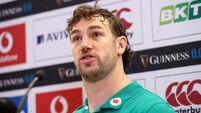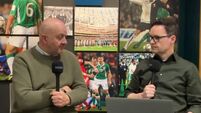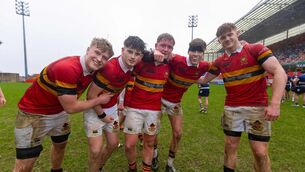Jerry Flannery on the Grand Slam: ‘You only really appreciate the magnitude of it when you look back’

None whatsoever. In the autumn, we had beaten Fiji and Argentina and lost to New Zealand and it was really all about getting the group together under the new coaching team, Deccie (Kidney), Gert (Smaal), Les (Kiss) and Alan Gaffney. It was a completely new regime.















